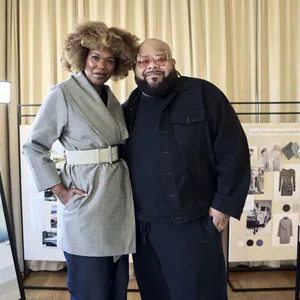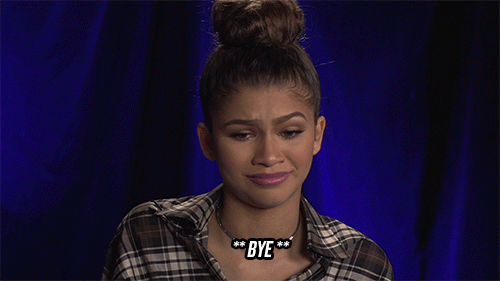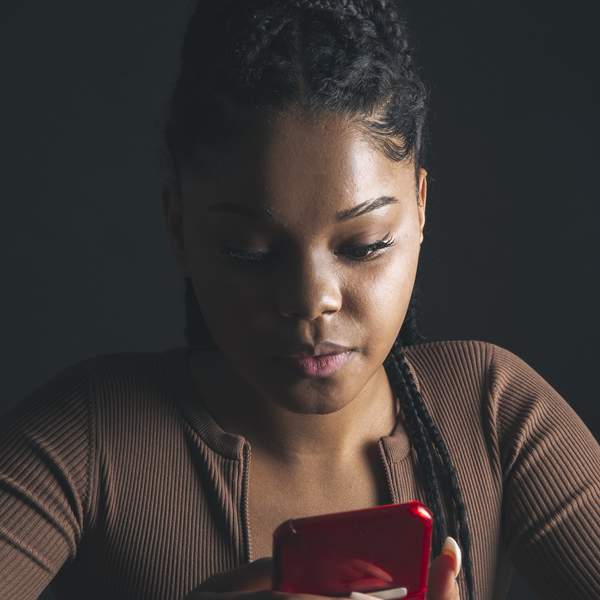I must admit that there's an irony here. What I mean by that is it is fascinating that, since one of my passions is reconciling divorced married couples, it's a little weird that I would even be open to penning a piece about friends who may need to get a "divorce". I think a part of the reason why I somewhat support the latter kind of break-up is because, I actually tend to see more people put up with toxicity in their friendships than in their marriages. It really is interesting—at least it is to me—that someone can vow "until death parts us" to their spouse and be out in two years flat, but an individual they did not make a formal commitment to? That person can talk about them, disregard their needs and ultimately prove to be more of a foe than an ally and somehow, there's all kinds of tolerance and second chances offered up in their direction.
I could pen an entire piece on how a lot of folks are more loyal to their friends than their spouses because they aren't actual friends with their life partner and probably never were…but we'll save that for another day. What I'll say for now is this—because I know, firsthand, all of the good that a healthy friendship can do and all of the bad that a toxic one can bring into your life, I do think that sometimes friendships need to end in their own version of a divorce; divorce in the sense of experiencing "total separation; disunion"—for the ultimate well-being of both individuals. And just what are some of the indicators that you've experienced enough to let a particular friend go?
6 Signs It's Time To Let A Friend Go
1.Does Communication Suck?
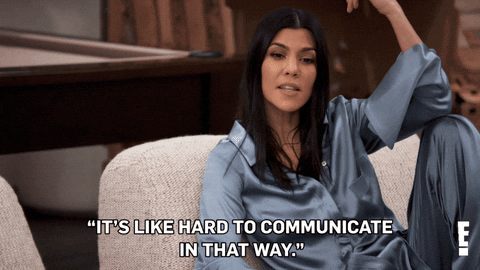
If you were to ask a divorced person you know about what led to the ending of their marriage, one of the things that they would probably mention is there was a breakdown in communication. Communication is what helps two people to mentally and emotionally connect to one another, so yeah, if that isn't happening effectively, couples end up feeling misunderstood, ignored and end up growing apart.
Same thing with friendships. If you and one of your friends aren't hearing each other out, respecting each other's feelings and perspectives, are ignoring each other's vocalized needs (and triggers), are impatient while dealing with one another, and/or aren't making the time to emotionally connect, these are clear signs of poor communication. And while it doesn't automatically mean that the friendship is doomed, what it does mean is you two aren't in a good space and, if you leave things where they are, the relationship isn't going to get better…over time, it's only going to get worse.
2.Is Any Form of Abuse Transpiring?
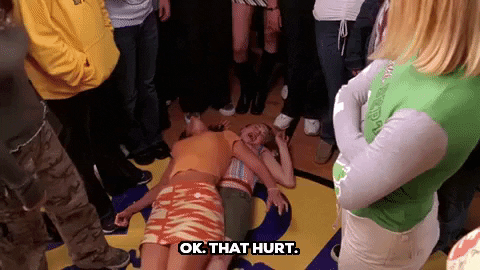
I've been through some stuff. Believe you me. But if I were to think about some of the most emotionally abusive situations that I've been in, it would have to be with people I considered to be my friends. How do you know if one of your friends falls under this category? Manipulation is a form of emotional abuse. Users are emotionally abusive. People who make you feel like you constantly have to walk on eggshells in their presence are emotionally abusive. Individuals who aren't open to negotiating, ones who take the "It's my way or the highway" approach, they are emotionally abusive. Ghosting in and out is a form of emotional abuse. Giving the silent treatment when things don't go their way is emotional abuse. Expecting you to be there for them when they aren't there for you is a form of emotional abuse. Gaslighting you is a form of emotional abuse. I'm sure you get this gist now.
And why do so many of us put up with this type of treatment? From my own personal experiences, 1) I think a lot of us don't realize that it is abuse in the first place and/or 2) we feel like friendship is about standing by our friend, even when they are being assholes. But here's the thing about the second point—an author by the name of Darlene Quimet once said, "Controllers, abusers and manipulators don't question themselves. They don't ask themselves if the problem is them…they always say the problem is someone else." So while you're out here thinking that you're "loving your friend through their abusive tendencies", if they are textbook abusers, they're probably not even thinking about, let alone caring about, how they're acting or how it's affecting you. And when someone isn't self-aware or respectful enough of others to make necessary changes…nothing changes.
Most of us wouldn't stand for physical or perhaps even verbal abuse from a friend. But if you're constantly being taken on an emotional roller coaster ride, that's a form of abuse too. And if you bring this to your friend's attention and, frankly, they don't give a damn, this is a really good reason to strongly consider initiating a friendship divorce. Stat.
3.Is Your Friend Disloyal?
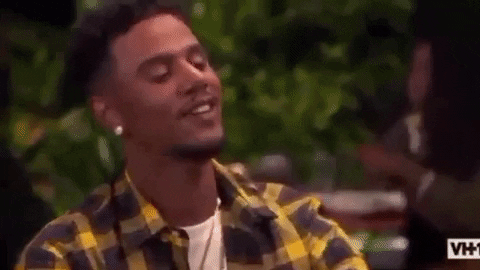
Another reason why a lot of married couples end their union is due to infidelity; you know, one or both people being unfaithful. On the friendship tip, unfaithfulness tends to come in the form of being disloyal. Disloyalty can be someone who talks about you behind your back. Disloyalty can also be someone who breaks "the codes" that are between the two of you. Some other ways that a person can be disloyal include—telling your business, not having your back when times are difficult, being competitive over being supportive (which is oftentimes a clear indication of envy), acknowledging your friendship in different ways based on who they are around (you're their bestie unless someone they think is "more important" is in their presence, then they downplay the relationship), and/or them saying or doing things that prove to be deceptive or untrustworthy in any way.
Sometimes, we'll put up with someone like this because we met them this way. What I mean by that is they treated other folks like this, charmed their way into our lives, and somehow, we thought things would be different when it came to us. But like another author by the name of Chobir Dokan once said, "If they disrespect you to your face, imagine what they are doing behind your back." You are no exception to a point like this.
It's hard to be in a relationship with anyone who is disloyal. So, if you read this part of the article and someone immediately came to mind, just keep in mind that some definitions of disloyal include treacherous, dangerous and insecure. If you want to try and maintain something with someone based on those traits, all I've got to say is good luck. Oh, and be careful too.
4.Are You the Only One Who’s Working on the Relationship?
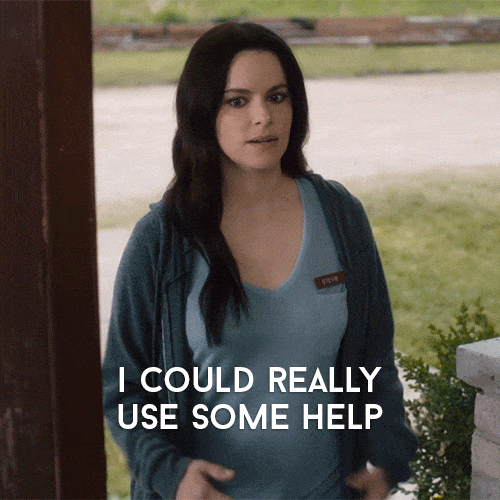
I think it's hilarious how much Divorce Court pops up in my YouTube feed. Sometimes I watch, sometimes I don't. But when it came to a particular episode where a woman was basically being a man's wife while he was being her boyfriend, I appreciated what Judge Lynn Toler had to say about it—"Never do wife duties at girlfriend prices…the first meal I ever cooked my husband was a week after we were married…you're not giving me a ring and some security, clean your own stuff. I ain't got time for that; I've got things to do. You think I'm good enough to share your body, you think I'm good enough to have your baby—you think that he thinks you're good enough that he can trust you with his clothes and his business but he can't give you his last name? Ugh."
Ugh is right. It's commentary like this that inspired me to pen pieces like "Why I'll Never Call Someone A 'Boyfriend' Again" and "Why You're Always The One Who Prepares A Man For His Wife". And, on the friendship tip, it inspired me to also write "Allow These Things To Happen Before Calling Someone 'Friend'". Trust me, I know what it's like to care for someone, both on a romantic and purely friendship level, and then move on those feelings without getting clarity on whether the person that I'm devoting so much of what I have to is on the same page as I am. When you don't take the time out to see if they see the relationship in the same way that you do, that is how you can end up doing most of the work to maintain it. Why? Because you value it more than they do. Plain and simple.
Coming to this realization isn't an automatic friendship deal-breaker. What should be is once you come to this realization, and bring it to their attention, nothing changes. Now we've got a real problem because, if your friend is cool with you doing 80 percent of what it takes for the relationship to remain intact, not only do they not care very much about the friendship itself, but they don't care as much about you as they should either.
And please tell me why you should remain friends with anyone who would disrespect you in this manner? Like Judge Toler said, "Ugh." Just ugh.
5.Do Things Seem to Be Getting Progressively Worse?
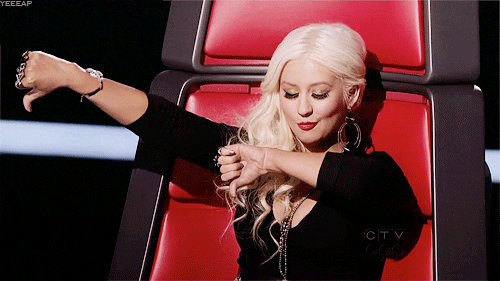
Some friendships, unfortunately, end up dying a very slow and painful death. The reason why is because, although we see the writing that is on the wall, we try and act like the relationship isn't getting to the point where it's proving to be unhelpful or non-beneficial to both individuals. When I think about this particular point, a former friend who stayed at least three years longer than they should have comes to mind. I knew there was a hard conversation that needed to be had, but I kept avoiding it because, since they were so arrogant and entitled, I knew that they would play the victim if I brought my concerns up.
In hindsight, I wish I had though, because if we had ended things sooner, I still would've had some level of respect for them. But because I kept allowing matters to get worse and worse, by the time I did officially dip out, I didn't even really like them anymore. I still don't. A big part of that is because I kept trying to be a friend while they kept being anything but. As a result, it made me resentful, then angry…and then abruptly done. The problem with that is it's a poor assumption that friendship divorces have to be ugly and messy. But if a relationship lasts way past its time, that's exactly how it could end up. A big ole' emotional mess.
Moral to the story—if you see your friendship is on life support, opt for quality more than quantity. End it sooner than later because the sooner that you do, the faster you can heal and open your heart to those who will be good friends in your life.
6.Have “Seasons of Separation” Never Worked Out for the Better?
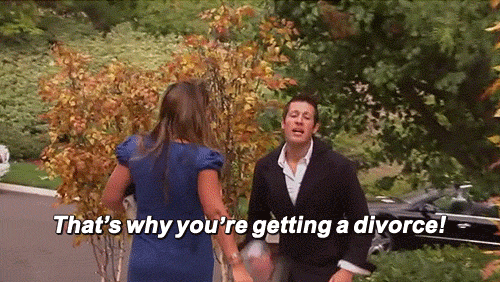
One more. Whenever a married couple asks me what I think about them separating, the first thing I always say is, "If you're doing it because you need space in order to come back together and work harder at your relationship, I'm all for it." Then I recommend that they invest in the book Hope for the Separated: Wounded Marriages Can Be Healed by Dr. Gary Chapman (the same guy who came up with the love languages theory that many of us apply to our relationships). The reason why I think it's so important to put this on record with troubled couples is because a lot of people just see separation as a step away from divorce. But really, what it needs to be is a time when two people can get the space that they need to see if and how to make their marriage work.
I think that sometimes friendships need the same thing. Several years ago, a former friend of mine and I kept butting heads so much that we took a break for several months. During that time, I really did evaluate the good, the bad and the counterproductive about us. By the time we had a chat about where things stood, I came to the conclusion that, although I would always love her, we really did need to part ways—to "divorce". It was years later before I saw her again, but when I did, there was hugging, there was catching up…there was peace. Then there was walking away from one another so that we could continue on with our lives—separately.
In hindsight, I think that our divorce is the reason why there was no bitterness and drama when we did finally see each other again. When two people choose not to communicate their feelings and needs, when ghosting transpires, that can leave real scars because, there's like an element of disregard and disrespect that's left behind. But as I oftentimes say, when two people come into a relationship together, they really should come to an agreement together if it should end as well. More times than not, this approach results in a "clean break" that still might be painful, but it also can make it easier to heal and move on as well.
Just like marriages, I strongly doubt that a lot of people go into their friendships with an ending in mind. But also, just like marriage, friendships should be healthy, fruitful and mutually beneficial. If you read all of this and that's something that you can't say is transpiring in one of your friendships, it may be time for a total separation—a friendship divorce. Think it over. Pray about it. Discuss it with your friend. If you discover that it is time to move on, there is a poetic irony here—coming to a place of accepting that you both need something different and perhaps better actually is being each other's friend. Even if that means not actually being friends with one another…anymore.
Want more stories like this? Sign up for our newsletter here and check out the related reads below:
10 Signs You've Got A Close (TOXIC) Friend
8 Signs That You Might Be The Toxic Friend Of The Group
Breaking Up With Toxic Friends Won't Be Easy, But It's So Necessary
5 Signs Of A Toxic Friendship That Is Secretly Poisoning Your Life
Feature image by Giphy
Did you know that xoNecole has a new podcast? Join founder Necole Kane, and co-hosts Sheriden Chanel and Amer Woods, for conversations over cocktails each and every week by subscribing to xoNecole Happy Hour podcast on Apple Podcasts and Spotify.
- How To Heal From A Broken Friendship - xoNecole: Women's ... ›
- Reasons To Let Go Of Expired Friendships - xoNecole: Women's ... ›
- Signs You Should Break Up - xoNecole: Women's Interest, Love, Wellness, Beauty ›
- What To Consider When Separating - xoNecole: Women's Interest, Love, Wellness, Beauty ›
- Always Remember That Friendships Have "Levels" To Them - xoNecole: Women's Interest, Love, Wellness, Beauty ›
- Learn The Signs Of Gaslighting In Friendships - xoNecole: Women's Interest, Love, Wellness, Beauty ›
- 7 Signs Someone Isn't Really Your Friend - xoNecole: Women's Interest, Love, Wellness, Beauty ›
- How To Maintain Your Mental Health & Sustain Healthy Friendships At The Same Time - xoNecole: Women's Interest, Love, Wellness, Beauty ›
- When to End a Friendship and How to Do It | Psychology Today ›
- 5 Ways To Embrace Ending Friendships and Relationships ›
- Six ways to end a friendship gracefully ›
- Why Ending a Friendship Can Be Worse Than a Breakup | Time ›
- How to End a Friendship - Cutting off a Friend ›
- How to End a Friendship: The Best Tips ›
- Friendship Ended With Mudasir | Know Your Meme ›
- friendship divorce - Urban Dictionary ›
- From BFF to 'Friend Divorce:' ›
- When Friends Divorce | Psychology Today ›
- Divorce a toxic friend by avoiding mixed messages and realise you ... ›
- Divorce Your Friends, Do It! | Thought Catalog ›
- Friend Divorce: 6 Important Tips for Ending a Friendship ›


